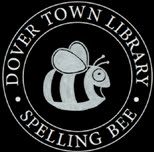I love receiving the Oxford English Dictionary's Word of the Day. This entry came in on December 23rd, and I am hoping--HOPING--that it was a sly joke. Check it out (their text is in italics):
Your word for today is: putz, n./1
putz, n.1
Pronunciation: Brit. /pʊts/, U.S. /pʊts/
Forms: also with capital initial.
Etymology: < Pennsylvania German putz (German Putz decoration, ornament (late 16th cent.; now archaic in this sense) < putzen to decorate, to clean (15th cent.), of uncertain origin: perhaps related to classical Latin putāre to cleanse, to prune: see putation n.).
U.S. regional.
An ornamental display representing the Nativity scene, traditionally placed under a Christmas tree.
Originally a Pennsylvania German tradition.
1885 Oshkosh (Wisconsin) Daily Northwestern 26 Jan. 2/5The children disperse to their homes where Santa Claus has been busy giving finishing touches to the ‘Putz’.
1902 N.Y. Times Mag. 14 Dec. 15/2Only the chosen few can afford to have a really impressive ‘putz’ which fills half a room, and represents a landscape in miniature.‥ This more elaborate ‘putz’ requires not only money for its erection, but artistic handiwork.
1926 Ladies' Home Jrnl. Dec. 82/2The putz is simply the pictured story of the Nativity, built near or at the base of the Christmas tree.
1963 K. H. Seibel Joyful Christmas Craft Bk. iii. 60 (caption)A putz like this with tiny figures of the Holy Family in the Nativity scene is made with a variety of other figures, too.
2001 Frederick (Maryland) Post 8 Dec. b8/5The main components of a Putz are Nativity figurines and much imagination.
Where I grew up, putz had a very different meaning. Does anyone else remember the movie The Sunshine Boys (1975), with Walter Matthau and George Burns? It may have been the first PG movie I ever saw, and that rating might have been due to the refrain "You're a putz". I'm pretty sure they were not talking about nativity scenes, although if you read the 1902 definition above, it could come pretty close.
Checking in with Leo Rosten's The Joys of Yiddish confirms my suspicions about the widespread acceptance of the more popular meaning of the word putz. Rosten tells us that it is not a nice word; he suggests shmuck as a gentler version of the same concept.
Lest you think that the disparity in definitions is simply a matter of time (1902 versus the present), take a look at the Christmas Village depicted here: it goes beyond the traditional Nativity scene. Check the current Encarta entry for the term, and you are directed to a language advisory. It would seem that both terms stem from the German word for finery or ornament--but the Yiddish derivitave is ironic, and the Nativity derivative is literal.
I'm surprised that the OED did not include any of the Yiddish-derived definitions of the word, especially since they are careful to attribute the word to American usage. Just imagining the confusing conversation using this word that might take place between two native speakers of American English is enough to make anyone laugh--so, whether you celebrate it or not, I hope this entry gives you a Merry Christmas!
Saturday, December 25, 2010
Subscribe to:
Comments (Atom)



